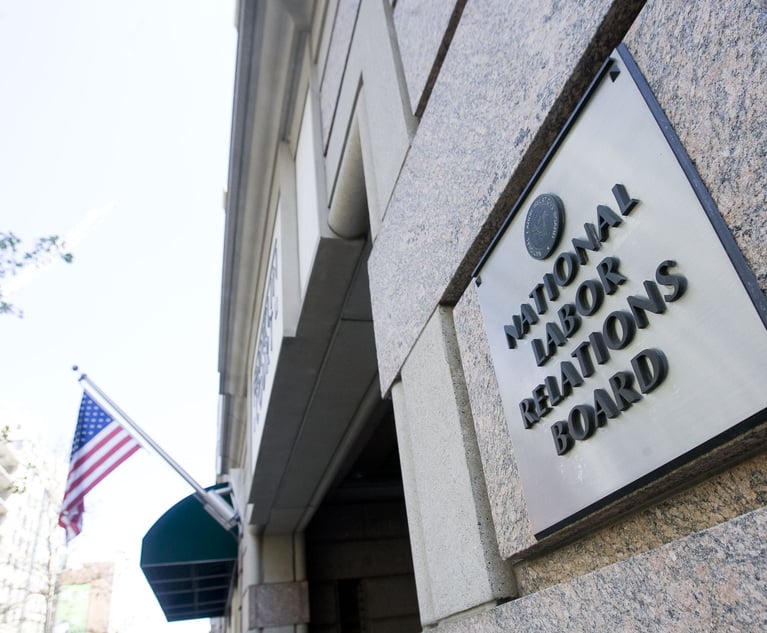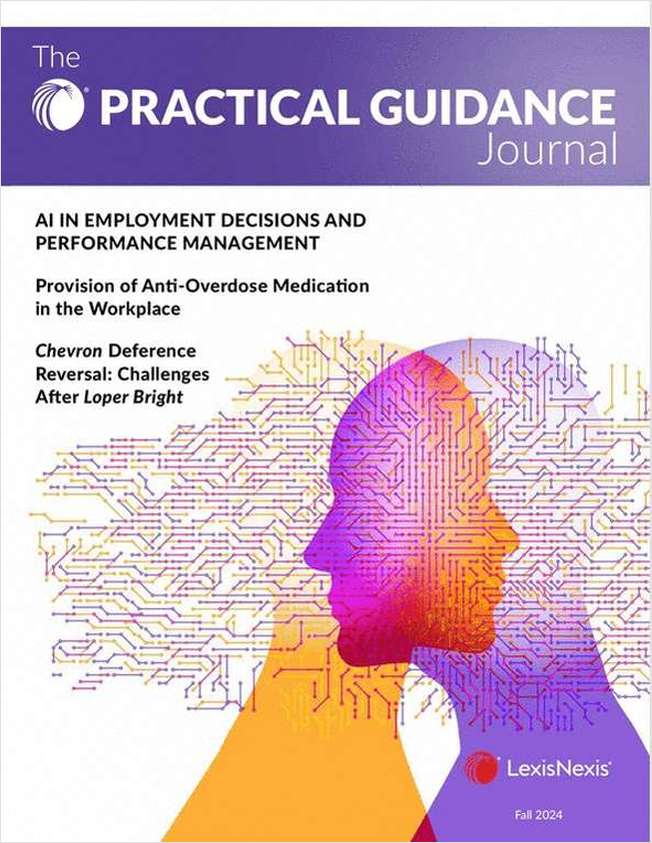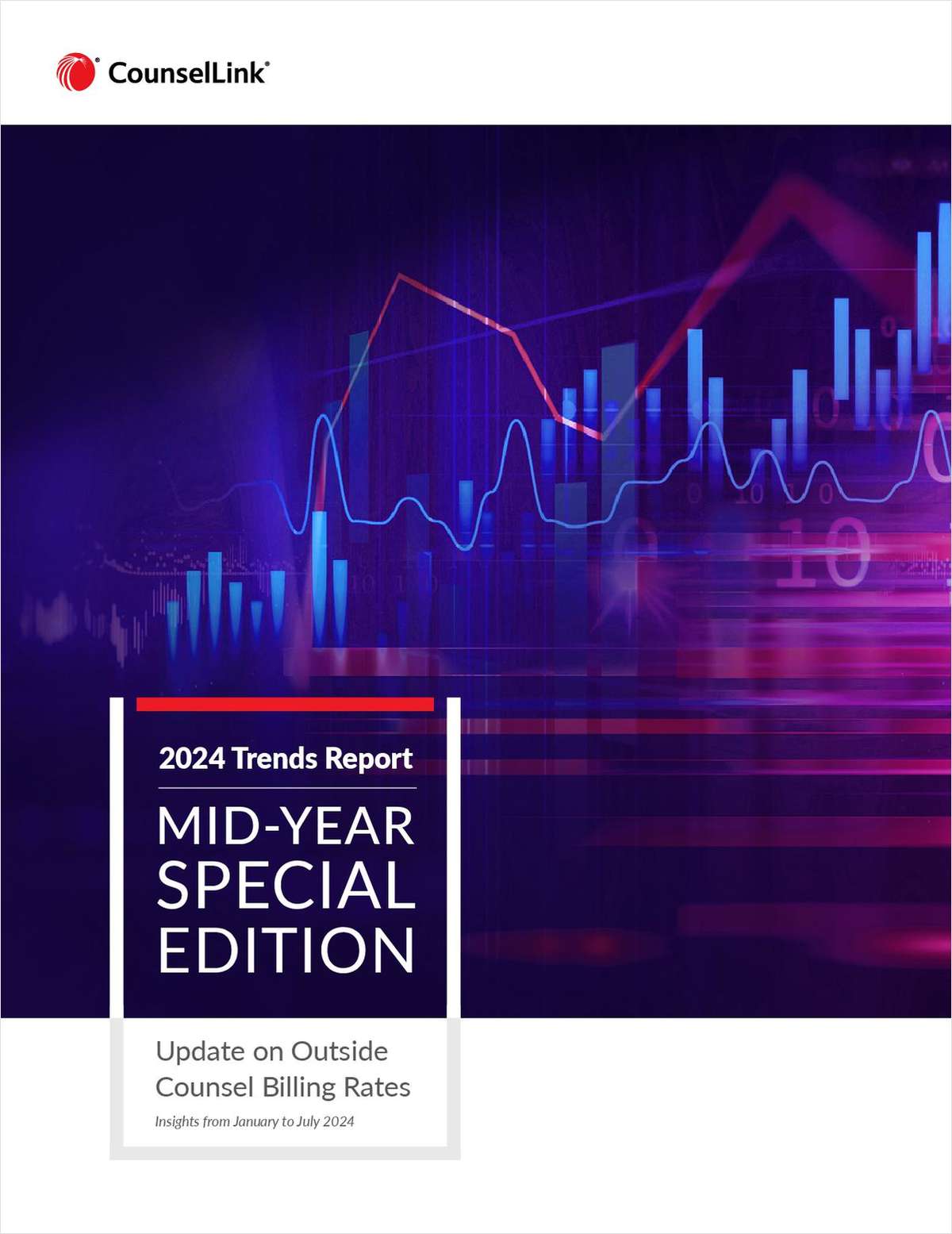Addressing Mental Illness in the Workplace
Nearly one in five adults in the United States, 43.7 million people, are affected by mental illness in a given year, according to the National Alliance on Mental Illness. These numbers suggest that, at some point, employers will have to deal with issues related to employees' mental health.
June 29, 2015 at 08:36 PM
8 minute read
The original version of this story was published on The Legal Intelligencer
Nearly one in five adults in the United States, 43.7 million people, are affected by mental illness in a given year, according to the National Alliance on Mental Illness. These numbers suggest that, at some point, employers will have to deal with issues related to employees' mental health.
When it comes to dealing with mental illness in the workplace, employers and employees are caught in a catch-22 situation. The catch for employers is that they are responsible for the safety of their employees and the public, but are also obligated not to discriminate on the basis of disability. If they know that an employee suffers from a mental illness, they are obligated to ensure that the employee is not in a position to harm anyone, which in some cases may mean terminating the employee. Following the crash of Germanwings Flight 9525 in March, the media and many members of the public were quick to accuse Lufthansa Airlines of negligence for not realizing that the co-pilot was mentally ill. Whether the airline is at fault remains to be seen, but society (and often juries) are quick to judge when others' lives are at stake.
But if an employer prematurely takes action against an employee based on a mental illness, it could run afoul of the Americans with Disabilities Act. The ADA protects employees who have mental health issues that limit one or more substantial life activities, as long as the employee can perform basic job functions with a reasonable accommodation.
NOT FOR REPRINT
© 2024 ALM Global, LLC, All Rights Reserved. Request academic re-use from www.copyright.com. All other uses, submit a request to [email protected]. For more information visit Asset & Logo Licensing.
You Might Like
View All
Employers Race to File NLRB Petitions to Gain Upper Hand in Union Organizing
5 minute read
Tractor Supply Co.'s Stock Takes Hit After Activists Bash Its Embrace of DEI
6 minute read
Southwest Vows to Appeal Order Requiring Top Lawyers to Undergo 'Religious Liberty Training'
Trending Stories
- 1The Law Firm Disrupted: Playing the Talent Game to Win
- 2GlaxoSmithKline Settles Most Zantac Lawsuits for $2.2B
- 3BD Settles Thousands of Bard Hernia Mesh Lawsuits
- 4Preparing Your Law Firm for 2025: Smart Ways to Embrace AI & Other Technologies
- 5Inside Track: Late-Career In-House Leaders Offer Words to Live by
Who Got The Work
Nicholas M. DePalma and Christian R. Schreiber of Venable have stepped in to represent CP Management Services, CRS RB4 Holdings and other defendants in a pending breach-of-contract lawsuit. The suit was filed Aug. 30 in Virginia Eastern District Court by Greenberg Traurig on behalf of Daito Kentaku USA. The case, assigned to U.S. District Judge Claude M. Hilton, is 1:24-cv-01538, Daito Kentaku USA, LLC v. Comstock Partners, LC.
Who Got The Work
Wyatt, Tarrant & Combs partner Andrew J. Pulliam has entered an appearance for Steve Jensen in a pending breach-of-contract lawsuit. The action, filed Aug. 30 in Tennessee Middle District Court by the Law Office of Perry A. Craft on behalf of Timothy Robins, accuses the defendant of writing a worthless check for over $94,000 for the sale of auctioned goods. The case, assigned to U.S. District Judge Eli J. Richardson, is 3:24-cv-01064, Robins v. Jensen et al.
Who Got The Work
Lane Powell shareholder Pilar C. French has entered an appearance for Penney OpCo LLC in a pending consumer class action. The complaint, filed Aug. 26 in Oregon District Court by Hattis & Lukacs, alleges that the company markets fictional discounts for certain products. The case, assigned to U.S. Magistrate Judge Mustafa T. Kasubhai, is 6:24-cv-01414, Gamble v. Penney OpCo LLC.
Who Got The Work
Donald L. Carmelite and Coryn D. Hubbert of Marshall Dennehey have stepped in to defend the City of York, Detective Roland Comacho and Detective Lisa Daniels in a pending civil rights lawsuit. The complaint, filed Aug. 27 in Pennsylvania Middle District Court by Levin & Zeiger on behalf of Noel Matos Montalvo, seeks damages for the amount of time that Montalvo was incarcerated over five years for the exonerated killing of his common law wife. The case, assigned to U.S. District Judge Jennifer P. Wilson, is 1:24-cv-01459, Montalvo v. City of York, et al.
Who Got The Work
Joseph M. Englert, Brian E. Pumphrey and M. Laughlin Allen of McGuireWoods have entered appearances for Bank of America NA in a pending class action. The action was filed Aug. 26 in Georgia Northern District Court by Podhurst Orseck; Webb, Klase & Lemond; Crabtree & Auslander; and Morrison + Associates on behalf of the representative of the beneficiaries of the Arthur N. Weinraub Trust, a trust which contains residential real property. The suit accuses the defendant of overcharging the trust by selecting unnecessary and/or excessively priced insurance for the property. The case, assigned to U.S. District Judge Thomas W. Thrash Jr., is 1:24-cv-03780, Weinraub v. Bank of America, N.A.
Featured Firms
Law Offices of Gary Martin Hays & Associates, P.C.
(470) 294-1674
Law Offices of Mark E. Salomone
(857) 444-6468
Smith & Hassler
(713) 739-1250









